Find Help
More Items From Ergsy search
-

Think Pharmacy: Conjunctivitis
Relevance: 100%
-

Can Ozempic be used in conjunction with other weight-loss medications?
Relevance: 52%
-

What are the symptoms of Rubella?
Relevance: 24%
-

What are the symptoms of Zika virus?
Relevance: 21%
-
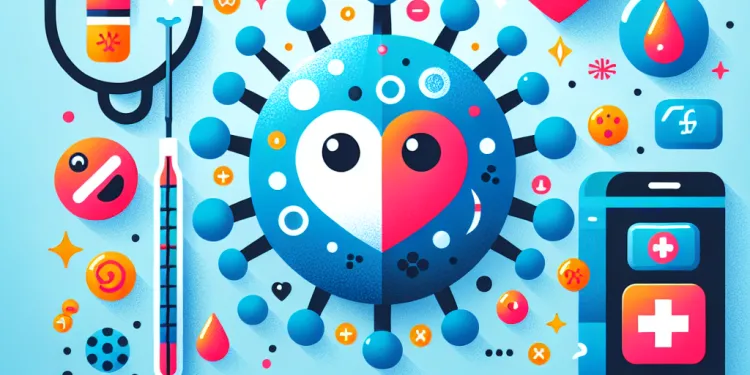
What are the symptoms of measles?
Relevance: 17%
-

Should UK travelers be concerned about Zika virus?
Relevance: 16%
-

How does hormone therapy help in treating prostate cancer?
Relevance: 16%
-
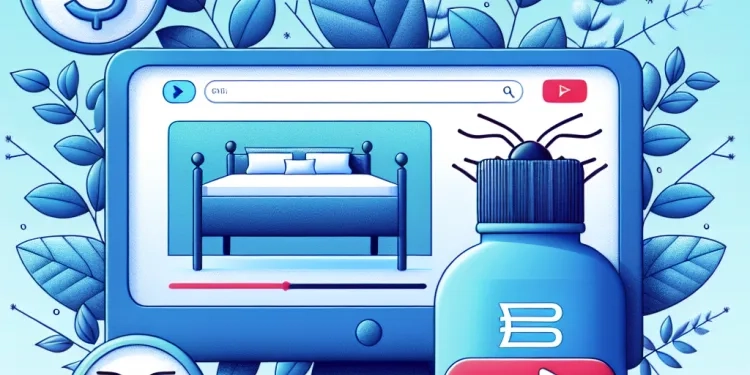
Are there any natural remedies for bed bugs?
Relevance: 15%
-
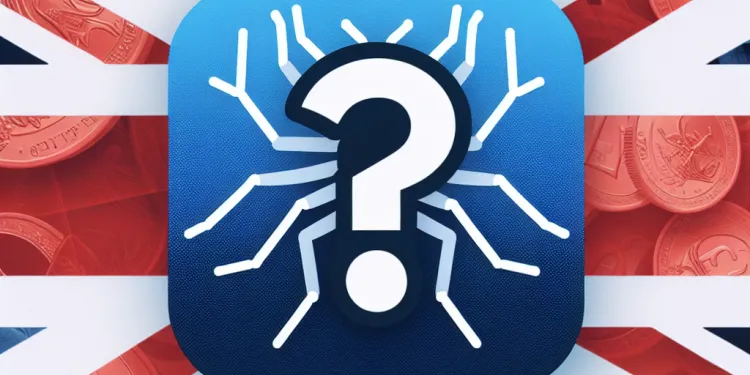
Is Zika virus present in the UK?
Relevance: 15%
-

What are the common side effects of spinal anaesthesia?
Relevance: 15%
-

What should someone from the UK do if they think they have Zika virus after traveling?
Relevance: 15%
-

Is the UK government providing guidance on Zika virus for travelers?
Relevance: 15%
-

What is a CA-125 test?
Relevance: 14%
-
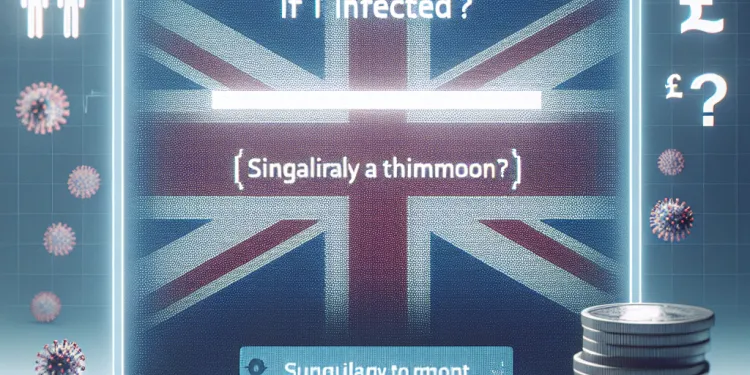
Can men in the UK transmit Zika virus if infected?
Relevance: 14%
-

How is prostate cancer treated?
Relevance: 14%
-

What are the symptoms of measles?
Relevance: 12%
-

An Introduction to Decompression Illness: Signs & Symptoms”. Dr Roland Armes
Relevance: 11%
-
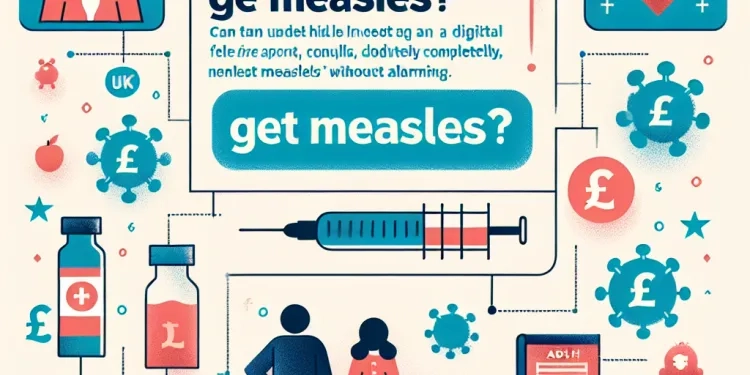
Can adults get measles?
Relevance: 11%
-

What are Wegovy Tablets?
Relevance: 11%
-

Is surgery always required to treat flesh-eating disease?
Relevance: 11%
-

Can hay fever symptoms mimic other conditions?
Relevance: 11%
-

Introduction to Chemotherapy, NHS Highland
Relevance: 10%
-

Medicines of the heart
Relevance: 10%
-

Reactive arthritis
Relevance: 10%
-

Does Paracetamol reduce inflammation?
Relevance: 10%
-

What should you do if you suspect you have measles?
Relevance: 10%
-

What are the symptoms of measles?
Relevance: 10%
-
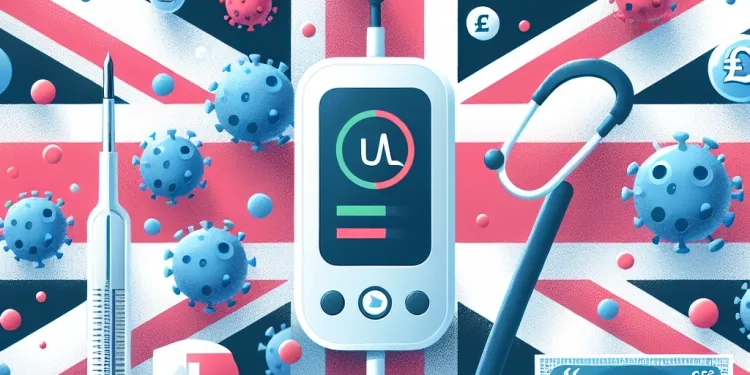
What should I do if I suspect I have measles?
Relevance: 10%
-

Is training required to use an AED?
Relevance: 10%
-

Are there any Zika virus outbreaks currently?
Relevance: 10%
-

What treatments are available for shingles?
Relevance: 10%
-

How is hypotony diagnosed?
Relevance: 10%
-

Is Abiraterone used in combination with other medications?
Relevance: 10%
-

Is meningitis vaccination required for military recruits?
Relevance: 10%
-
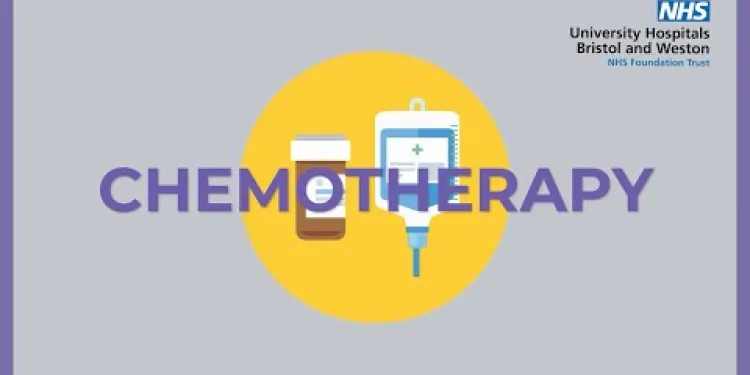
Chemotherapy
Relevance: 10%
-

Do masks help with hay fever?
Relevance: 10%
-

How much caffeine is generally considered safe for people with high blood pressure?
Relevance: 10%
-

Can I receive this payment alongside other cost of living payments?
Relevance: 10%
-

What are the common side effects of Ozempic?
Relevance: 10%
-

Can Ozempic be taken with food?
Relevance: 10%
Think Pharmacy: Conjunctivitis
Conjunctivitis, often referred to as "pink eye," is a common eye condition that can cause discomfort and irritation. For residents in the United Kingdom, understanding conjunctivitis and how pharmacies can help manage this condition is crucial. Here, we explore key aspects to help you Think Pharmacy when dealing with conjunctivitis.
What is Conjunctivitis?
Conjunctivitis is the inflammation of the conjunctiva, the thin, transparent layer of tissue that lines the inner surface of the eyelid and covers the white part of the eye. This condition can be caused by infections (bacterial or viral), allergies, or irritants like smoke or chemicals. Common symptoms include redness, itching, a gritty feeling, and discharge from the eye.
Types of Conjunctivitis
Conjunctivitis is classified into three major types:
- Bacterial Conjunctivitis: Typically causes a thick discharge and may affect both eyes.
- Viral Conjunctivitis: Often associated with a cold, it usually affects one eye and causes watery discharge.
- Allergic Conjunctivitis: Triggered by allergens like pollen or pet dander, causing redness, itching, and tearing in both eyes.
When to Visit a Pharmacy
Pharmacies in the UK are well-equipped to handle mild to moderate cases of conjunctivitis. You should visit a pharmacy if you experience symptoms such as redness, mild pain, irritation, or a gritty sensation in the eyes. Pharmacists can recommend over-the-counter treatments like lubricating eye drops, antihistamines for allergic conjunctivitis, and proper hygiene practices to prevent the spread of infection.
Available Treatments at UK Pharmacies
Pharmacists can provide or recommend several treatments, including:
- Artificial Tears: To soothe irritated eyes and flush out any irritants.
- Antihistamine Drops: Effective for allergic conjunctivitis, reducing itching and redness.
- Antibiotic Eye Drops or Ointments: Used for bacterial conjunctivitis, but should be taken under the guidance of a pharmacist or doctor.
Preventing the Spread of Conjunctivitis
Preventing the spread of conjunctivitis is essential to protect those around you. Some preventative measures include:
- Washing hands regularly.
- Avoiding touching or rubbing your eyes.
- Using clean towels and pillowcases.
- Avoiding the sharing of personal items like eye makeup or contact lenses.
When to Seek Medical Attention
While mild conjunctivitis can often be managed with the help of your local pharmacy, you should seek medical attention if you experience severe pain, vision changes, intense redness, or if symptoms worsen or persist beyond a week. In such cases, a GP or specialist may need to assess and provide more advanced treatment options.
Conclusion
Conjunctivitis, though uncomfortable, is manageable with the right approach. UK pharmacies are a valuable resource for initial treatment and advice. Remember to practice good hygiene, follow pharmacist recommendations, and seek medical care if needed to ensure a swift recovery.
Think Pharmacy: Pink Eye
"Pink eye" is another name for conjunctivitis. It's a common eye problem that makes your eyes red and itchy. If you live in the UK, it's good to know what pink eye is and how pharmacies can help you feel better. Let's learn more about it.
What is Pink Eye?
Pink eye happens when a part of your eye called the conjunctiva gets swollen. The conjunctiva is a thin layer that covers your eye and eyelid. Pink eye can be caused by germs, allergies, or things like smoke. Signs of pink eye include red eyes, itching, and stuff coming out of your eye.
Types of Pink Eye
Pink eye can be three main types:
- Bacterial Pink Eye: You'll see thick stuff coming out of your eyes, and both eyes may be affected.
- Viral Pink Eye: Often comes with a cold and usually affects one eye with watery stuff coming out.
- Allergic Pink Eye: Happens because of things like pollen or pets, making your eyes red and itchy.
When to Go to a Pharmacy
If your eyes are red, hurting a bit, or feel gritty, you can go to a pharmacy for help. Pharmacists can suggest eye drops, allergy medicine, and tips to stop spreading germs.
Treatments at UK Pharmacies
Pharmacies offer treatments like:
- Artificial Tears: Help to make your eyes feel better and wash away bad stuff.
- Antihistamine Drops: Good for allergies, they stop itching and redness.
- Antibiotic Drops or Ointments: For bacterial pink eye, only use them if a pharmacist or doctor says it's okay.
Preventing Pink Eye from Spreading
To keep others safe, follow these tips:
- Wash hands often.
- Don't touch or rub your eyes.
- Use clean towels and pillowcases.
- Don't share things like makeup or contact lenses.
When to See a Doctor
If your pink eye causes very bad pain, changes how well you see, or doesn't get better after a week, visit a doctor. They can give you more help.
Conclusion
Pink eye isn't fun, but you can manage it. Pharmacies in the UK can help you with treatment and advice. Remember to keep your eyes clean, listen to the pharmacist, and see a doctor if you need to. This will help you get better soon.
Frequently Asked Questions
What is conjunctivitis?
Conjunctivitis, also known as pink eye, is an inflammation of the conjunctiva, the thin, clear tissue that lies over the white part of the eye and lines the inside of the eyelid.
What causes conjunctivitis?
Conjunctivitis can be caused by bacteria, viruses, allergens, or irritants such as smoke, chlorine in swimming pools, or shampoos.
How can I tell if I have conjunctivitis?
Symptoms of conjunctivitis include redness in the white of the eye or inner eyelid, increased amount of tears, thick yellow discharge that crusts over the eyelashes, especially after sleep, green or white discharge from the eye, itchy eyes, and burning eyes.
Is conjunctivitis contagious?
Viral and bacterial conjunctivitis are highly contagious and can be spread through direct or indirect contact with the liquid that drains from the eye of someone who's infected. Allergic and irritant conjunctivitis are not contagious.
How is conjunctivitis diagnosed?
A healthcare professional can usually diagnose conjunctivitis by examining your eyes and assessing your symptoms. In some cases, they may take a sample of the discharge from your eye for further analysis.
What treatments are available for conjunctivitis?
The treatment for conjunctivitis depends on its cause. Bacterial conjunctivitis can be treated with antibiotic eye drops or ointments. Viral conjunctivitis usually does not require treatment and will resolve on its own. Allergic conjunctivitis can be treated with antihistamine eye drops. Irritant conjunctivitis requires removing the irritant and possibly using lubricating eye drops.
How long does conjunctivitis last?
The duration of conjunctivitis depends on its cause. Bacterial conjunctivitis typically lasts 1-2 weeks, viral conjunctivitis can last from a few days to up to 2 weeks, and allergic conjunctivitis will last as long as the allergen is present.
Can I go to work or school with conjunctivitis?
It's best to stay home if you have viral or bacterial conjunctivitis to avoid spreading the infection, particularly during the first 24 to 48 hours after treatment begins. Allergic and irritant conjunctivitis are not contagious, so you do not need to stay home.
How can I prevent the spread of conjunctivitis?
Frequent hand washing, avoiding touching your eyes, not sharing towels or pillowcases, and using clean tissues to wipe your eyes can help prevent the spread. If you wear contact lenses, ensure they are clean and properly disinfected.
Can I wear contact lenses if I have conjunctivitis?
It's recommended to avoid wearing contact lenses until your conjunctivitis has completely resolved and you have been given the all-clear by your healthcare provider. Using contacts may prolong the infection or irritate your eyes further.
Can babies and children get conjunctivitis?
Yes, conjunctivitis is common in babies and children. They can develop bacterial, viral, or allergic conjunctivitis. It's important to consult a healthcare provider for appropriate treatment, especially for young children.
Are there any home remedies for conjunctivitis?
Applying a warm compress to the eyes can help alleviate discomfort. Over-the-counter lubricating eye drops can also provide relief. However, it’s best to consult a healthcare professional for proper diagnosis and treatment.
When should I see a doctor for conjunctivitis?
You should see a doctor if you have moderate to severe pain in your eyes, blurred vision, intense redness, sensitivity to light, or symptoms that worsen or do not improve within a week. Infants with conjunctivitis should be seen by a doctor promptly.
Can conjunctivitis cause any long-term damage?
Conjunctivitis rarely causes long-term damage if treated promptly and properly. However, in severe cases, it can lead to complications such as corneal infection, which may require further medical treatment.
Is conjunctivitis related to COVID-19?
Conjunctivitis can occur as an ocular symptom of COVID-19, although it is less common. If you have conjunctivitis symptoms along with other COVID-19 symptoms, you should get tested and follow guidelines from healthcare professionals.
What is conjunctivitis?
Conjunctivitis is when your eye gets red and itchy. It can feel like there is something in your eye. Sometimes it makes your eye water a lot. People also call it "pink eye." If your eye feels sore or you cannot see well, tell an adult or a doctor.
It may help to use a soft, clean cloth to gently wipe your eye. Wash your hands often to keep germs away. Ask an adult for help if it hurts too much.
Pink eye, or conjunctivitis, is when the eye gets red and sore. This happens because the thin, clear layer over the white part of the eye and inside the eyelid gets swollen.
Why do eyes get conjunctivitis?
Conjunctivitis, or "pink eye," can be caused by germs, viruses, allergies, or things that bother the eyes like smoke, swimming pool water, or shampoo.
How do I know if I have pink eye?
Signs that you might have conjunctivitis (an eye problem) are:
- Red eyes or a red eyelid.
- Tears or watery eyes more than usual.
- Yellow stuff that makes your eyelashes sticky, especially when you wake up.
- Green or white stuff coming from the eye.
- Eyes that feel itchy.
- Eyes that feel like they are burning.
If you have trouble reading, you can try:
- Using audiobooks or texts read aloud by someone else.
- Highlighting important words in a different color.
- Taking breaks so your eyes don't get tired.
- Asking a friend or family member to help explain things.
Can you catch conjunctivitis from someone else?
Conjunctivitis, also called pink eye, is easy to catch from another person. It can spread if you touch your eyes after touching something a person with conjunctivitis has touched.
To protect yourself and others, wash your hands often and do not share towels, pillows, or eye makeup.
Germs and bugs can cause eye problems. Some types make your eyes red and sore, and they spread easily from one person to another. This can happen if you touch the liquid coming from an eye with germs or bugs in it.
But sometimes, eyes get red because of things like pollen or smoke. These kinds do not spread from person to person.
If you want help reading or understanding this text, you can:
- Ask someone to read it out loud to you.
- Use a screen reader app that reads text aloud.
- Watch a video about eye health.
How do doctors know if you have conjunctivitis?
A doctor can tell if you have conjunctivitis by looking at your eyes and asking about your symptoms. Sometimes, they might take a little bit of the goo from your eye to check it more closely.
What can help if you have conjunctivitis?
Here are some things that might help if your eyes are red and sore. Conjunctivitis is when your eyes get red and itchy.
- Eye drops: You can put special drops in your eyes to make them feel better.
- Clean your eyes: Use clean water and a soft cloth to gently clean your eyes.
- Rest your eyes: Take a break from screens, like TV or tablets, to help your eyes rest.
- See a doctor: If your eyes do not get better, a doctor can help you.
Using these ideas can help your eyes feel better. If you need more help, ask an adult or a doctor.
If your eyes are pink and sore, the treatment depends on what's causing it.
If bacteria cause it, the doctor can give you special eye drops or cream to make it better.
If a virus is the cause, you usually don't need medicine. It will get better by itself.
If allergies cause it, special eye drops can help stop the itchiness.
If something is bothering your eyes, like smoke or dust, you need to stay away from it and use special drops to keep your eyes wet.
If you find reading hard, you can use audiobook apps or ask someone to read it to you. Highlighting text with different colors can also help you focus.
How long does conjunctivitis last?
Conjunctivitis is when your eye is red and sore.
It can last a few days to a week.
If your eye is still red and sore after a week, ask a doctor for help.
Using cool, clean cloths on your eyes can make them feel better.
You can also use eye drops from the pharmacy.
How long you have conjunctivitis depends on what caused it.
If germs cause it (bacterial), it usually lasts 1 to 2 weeks.
If a virus causes it, it can last a few days to 2 weeks.
If you are allergic to something, it lasts as long as you are near the thing you are allergic to.
Try these things to help you understand better:
- Ask someone to read it with you.
- Look up words you don't know.
- Use a dictionary to help with hard words.
Can I go to work or school if I have conjunctivitis (Pink Eye)?
If you have conjunctivitis, you might feel sick. Conjunctivitis is also called Pink Eye. It makes your eyes red and itchy. It's important to be careful because you can spread it to others.
Here are some tips:
- Ask your doctor if it's okay to go to work or school.
- Wash your hands often to keep germs away.
- Try not to touch your eyes.
- If your eyes hurt or you can't see well, stay home and rest.
Remember, it's important to keep yourself and others healthy. If you feel too sick, tell a grown-up or a teacher.
If your eyes are red because of germs, it is better to stay at home. This way, you won't give the germs to other people. Try to stay home for the first 1 to 2 days when you start taking your medicine.
If your eyes are red because of things like allergies or something in the air, you don’t need to stay home. These are not catching, so you can't give them to other people.
How can I stop conjunctivitis from spreading?
Here are some simple steps you can follow to stop conjunctivitis from spreading:
- Wash your hands: Make sure to wash your hands often with soap and water.
- Don't touch your eyes: Try not to touch or rub your eyes.
- Use your own towel and pillowcase: Keep your things separate from others.
- Don't share eye stuff: Don't share eye drops, makeup, or contact lenses.
- Stay home if sick: If you have conjunctivitis, stay home until your eyes are better.
If you need help, ask a grown-up, friend, or a doctor. They can give you more advice.
Wash your hands a lot. Try not to touch your eyes. Don't share towels or pillowcases with other people. Use clean tissues to wipe your eyes.
If you wear contact lenses, make sure they are clean. Disinfect them properly.
Helpful tools: Use reminders to wash hands. Set alarms to clean your lenses.
Can I wear contact lenses if I have an eye infection?
If you have an eye infection, like conjunctivitis (also called pink eye), it is best not to wear contact lenses.
Using contact lenses with an eye infection can make it worse.
Here’s what you can do:
- Stop using your contact lenses.
- See a doctor for help.
- Wear glasses instead of contact lenses until your eyes are better.
- Clean your contact lenses and case very well.
Ask a grown-up or a friend to help you if you need it.
You should not wear contact lenses until your eye infection is completely gone. You should also wait until your doctor says it's okay. Wearing contacts might make the infection last longer or make your eyes hurt more.
Can babies and children get eye infections?
Yes, babies and children can get eye infections called conjunctivitis. This makes their eyes red and itchy.
If your child has red or itchy eyes, talk to a doctor. They can give you advice and medicine if needed.
You can help by gently cleaning your child's eyes with clean, wet cotton wool. Always use a new piece of cotton wool for each eye.
It is good to wash your hands and your child's hands often to stop the infection from spreading.
Yes, pink eye is common in babies and kids. They can get it from germs, viruses, or allergies. It's important to talk to a doctor for the right treatment, especially for little kids.
Can I use anything at home to help with pink eye?
If your eye is red and itchy, it might be pink eye. Here are some things you can try at home:
- Use a warm or cold towel on your eye. Hold it there for a few minutes to feel better.
- Keep your eye clean. Wash your hands a lot and gently clean your eye with a clean cloth.
- If your eyes feel dry, you can use eye drops to help.
- Try not to touch or rub your eyes.
- Rest your eyes. Try not to use screens too much.
Tell an adult if it does not get better. They can help you see a doctor.
Tools that can help:
- Ask someone to read things out loud to you.
- Use a voice app to help with reading.
Using a warm cloth on your eyes can help them feel better. You can also get special eye drops from the store to help. But, it's a good idea to talk to a doctor to find out what is really wrong and get the right help.
When should I see a doctor for an eye infection?
If your eye is red, itchy, or has a sticky yellow or green goo, you might have an eye infection called conjunctivitis.
You should see a doctor if:
- Your eye hurts a lot.
- You have trouble seeing clearly.
- Your eyes are very sensitive to light.
- The problem does not get better in a few days.
- You have a fever or feel really sick.
For help with learning, you can try using picture cards or ask someone to read out loud to you.
If your eyes really hurt, feel blurry, are very red, hurt when you see light, or don't get better in a week, see a doctor. Babies with eye problems should see a doctor right away.
Can conjunctivitis cause any long-term damage?
Conjunctivitis, or "pink eye," usually goes away on its own without causing long-term harm. Most people get better quickly.
To help your eyes heal:
- See a doctor if your eyes hurt or if you can't see well.
- Follow the doctor's advice.
Using glasses or sunglasses can protect your eyes. Take breaks when using screens.
Conjunctivitis, also called pink eye, usually gets better with the right treatment. It does not often cause big problems. But sometimes, if it is very bad, it can hurt your eye and you might need more help from a doctor.
If you have trouble reading, you can ask someone to read with you. You can also try using audiobooks or apps that read text out loud. These tools can help you understand better.
Can pink eye be linked to COVID-19?
Does COVID-19 cause pink eye? Let's find out together with simple words.
Pink eye, also called conjunctivitis, makes your eye red and itchy. Some people with COVID-19 have had pink eye too.
Always talk to a doctor if you feel sick. A doctor can help you know if you have pink eye from COVID-19 or something else.
If you find reading hard, try:
- Asking someone to read with you.
- Using audiobooks or audio guides.
- Taking breaks often.
- Pointing to each word as you read.
Sometimes, people with COVID-19 can get an eye infection called conjunctivitis, but this doesn't happen a lot. If your eyes are red and sore, and you also feel sick like you have COVID-19, it's important to get a test. Follow what your doctor or nurse tells you to do.
Useful Links
This website offers general information and is not a substitute for professional advice.
Always seek guidance from qualified professionals.
If you have any medical concerns or need urgent help, contact a healthcare professional or emergency services immediately.
Some of this content was generated with AI assistance. We’ve done our best to keep it accurate, helpful, and human-friendly.
- Ergsy carfully checks the information in the videos we provide here.
- Videos shown by Youtube after a video has completed, have NOT been reviewed by ERGSY.
- To view, click the arrow in centre of video.
- Most of the videos you find here will have subtitles and/or closed captions available.
- You may need to turn these on, and choose your preferred language.
- Go to the video you'd like to watch.
- If closed captions (CC) are available, settings will be visible on the bottom right of the video player.
- To turn on Captions, click settings .
- To turn off Captions, click settings again.
More Items From Ergsy search
-

Think Pharmacy: Conjunctivitis
Relevance: 100%
-

Can Ozempic be used in conjunction with other weight-loss medications?
Relevance: 52%
-

What are the symptoms of Rubella?
Relevance: 24%
-

What are the symptoms of Zika virus?
Relevance: 21%
-

What are the symptoms of measles?
Relevance: 17%
-

Should UK travelers be concerned about Zika virus?
Relevance: 16%
-

How does hormone therapy help in treating prostate cancer?
Relevance: 16%
-

Are there any natural remedies for bed bugs?
Relevance: 15%
-

Is Zika virus present in the UK?
Relevance: 15%
-

What are the common side effects of spinal anaesthesia?
Relevance: 15%
-

What should someone from the UK do if they think they have Zika virus after traveling?
Relevance: 15%
-

Is the UK government providing guidance on Zika virus for travelers?
Relevance: 15%
-

What is a CA-125 test?
Relevance: 14%
-

Can men in the UK transmit Zika virus if infected?
Relevance: 14%
-

How is prostate cancer treated?
Relevance: 14%
-

What are the symptoms of measles?
Relevance: 12%
-

An Introduction to Decompression Illness: Signs & Symptoms”. Dr Roland Armes
Relevance: 11%
-

Can adults get measles?
Relevance: 11%
-

What are Wegovy Tablets?
Relevance: 11%
-

Is surgery always required to treat flesh-eating disease?
Relevance: 11%
-

Can hay fever symptoms mimic other conditions?
Relevance: 11%
-

Introduction to Chemotherapy, NHS Highland
Relevance: 10%
-

Medicines of the heart
Relevance: 10%
-

Reactive arthritis
Relevance: 10%
-

Does Paracetamol reduce inflammation?
Relevance: 10%
-

What should you do if you suspect you have measles?
Relevance: 10%
-

What are the symptoms of measles?
Relevance: 10%
-

What should I do if I suspect I have measles?
Relevance: 10%
-

Is training required to use an AED?
Relevance: 10%
-

Are there any Zika virus outbreaks currently?
Relevance: 10%
-

What treatments are available for shingles?
Relevance: 10%
-

How is hypotony diagnosed?
Relevance: 10%
-

Is Abiraterone used in combination with other medications?
Relevance: 10%
-

Is meningitis vaccination required for military recruits?
Relevance: 10%
-

Chemotherapy
Relevance: 10%
-

Do masks help with hay fever?
Relevance: 10%
-

How much caffeine is generally considered safe for people with high blood pressure?
Relevance: 10%
-

Can I receive this payment alongside other cost of living payments?
Relevance: 10%
-

What are the common side effects of Ozempic?
Relevance: 10%
-

Can Ozempic be taken with food?
Relevance: 10%


